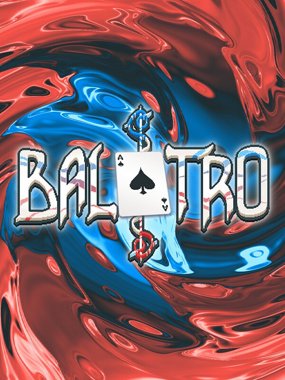It's valid to use packs only when necessary, and reset the entire run since it is often more efficient than rerunning the deck. Yet, aiming for success rates near 90% raises concerns. My apologies to make you confuse, that 6th was not good explanation. I'll revise the entire text later.
In a 7-deck RS, an optimal success rate of a deck ranges between 75-80%, mainly due to the 20% chance of encountering an 8th extra blind. This can be achieved by strategically skipping the 1st, 2nd stages to match around 150K on the 8th blind, using tarot cards. Success rates 90%+ should be attainable only with cheat jokers and combos capable of easily surpassing 150K, potentially reaching 300K with less effort. An average speedrun on a deck typically takes 9-13 minutes, but this can be reduced to 6-10 minutes with risk management.
While the need to reset the deck isn't ideal, there's room for improvement, especially as 7+ deck RS hasn't reached its full potential. (In my thought) Ideally, a 7 decks RS should have a 45-minute limit, with the first 3 decks reset in under 18-20 minutes. Similarly, a 15 decks RS should aim for a 2-hour limit, with a success rate of less than 1% achievable with good luck and solid strategies, though this remains distant from current records.
By the way, further optimization is still possible. When making purchases, prioritize opening card packs first after briefly checking other items. Also, buying tarot packs before cards whenever possible is advantageous, as getting Hermit and Temperance is equally likely.
Additionally, decisions like building deck, joker combos or judging the most useless jokers to first discard should be made during hand play or stage results. Alternatively, you could make time to consider these decisions by selling/using cards in consumable slots.
- It's a good idea to consider the sequence when choosing two cards/tarot cards from the pack.
For Tarot cards:
-
Money multiplication through Temperance (giving money equivalent to the total amount of card sales) => Money multiplication through the Hermit (giving money equivalent to the existing money)
-
Choosing the Joker card => Money multiplication through Temperance
-
Selling after selecting the Planet card/Joker/Tarot => Money multiplication through the Hermit
-
Temperance => Fool, Hermit => Fool, and so on.
For Joker cards,
- Selecting expensive cards that are not needed and then selling them => Choosing the necessary
- It's better to hold onto Hermit/Fool/Temperance and use them at the end.
Especially when buying a Joker pack, there are often instances of selling unnecessary cards.
At this time, one can choose the route of sale => Hermit or Temperance => sale, etc., depending on the situation.
Always keep in mind the possibility of Fool appearing when using the Fool/Temperance cards.
- It's best to spend all before buying the Spectrals pack.
Sometimes, you buy a rare Joker that makes 0 dollars.
In fact, in most case money is more important, you need not to do this.
- It's advisable to always fill up the interest seed money unless a cheat card is drawn.
Except for some decks, every time a round is cleared, you get $1 to $2 in interest for every $5.
The moment you break free from this cycle, you'll find yourself endlessly short of money.
- Due to the reasons mentioned above, filling up the money through rerolls is the easiest.
The chance of getting cards simply doubles the moment you reroll.
This way, a considerable portion of the luck-based game becomes rapid skill-based.
Out of the 22 Tarot cards, there are significantly 3 (Fool, Hermit, Temperance) that multiply money. When choosing among these three, there's approximately a 40% chance, and when choosing among five, roughly a 60% chance of gaining money. Opportunities like free Jokers, Planets, and Tarot cards are also quite favorable.
Once you know how to manage the cards, the difficulty becomes exponentially easier.
- Even with a well-built random deck based on the white stake, the usual clearance rate doesn't exceed 80% now.
Watching people doing speedruns, you realize how often they fail.
Especially with an 8-hand size, the probability of getting a double-straight or flush per discard is around 50%, and for a flush, it's around 80%.
If the deck is less refined and the run gets longer, it becomes quite random.
For such reason, I prefer reset-marathoning with <two pair builds and big money to decrease the randomness.
If you feel like it's doomed, it's better to reset the game by holding down the R key before the game fails.
- Planet packs are scams without vouchers. Very high opportunity cost.
If no cards are drawn, there can be a total of 9 cards that can appear.
The probability of getting the desired card is 33% in 3 choices and 55% in 5 choices. It's not very effective before deck building.
Rather than gambling without related Joker cards, it's better to reroll once and then reset the game, I think.
